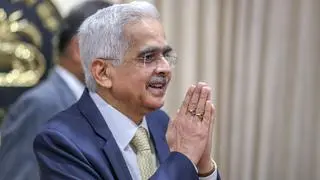It’s not banks, but operational creditors, that have initiated the most number of cases under the Insolvency and Bankruptcy Code (IBC), said MS Sahoo, Chairperson, Insolvency and Bankruptcy Board of India (IBBI).
Though the IBC got a boost with the promulgation of the Banking Regulation (Amendment) Ordinance, 2017, under which 12 big accounts were referred to the National Company Law Tribunal, there is a misconception that the Code is useful for only loan recovery or for tackling the banks’ NPA.
It is not a recovery mechanism, but is for resolution. The IBC entitles all kinds of financial creditors including banks, operational creditors including employees, and even the corporate debtor itself to trigger resolution processes.
From January till date, of over 400 corporate insolvency transactions, about 185 resolution processes were initiated by the operational creditors, about 125 by financial creditors, and about 90 by corporate debtors.
“It’s the right of anybody to trigger the process — either the debtor or creditor,” Sahoo told BusinessLine . Even if a bank does not trigger it in a particular case, another financial creditor or an operational creditor can trigger it. A bank has to participate in the resolution process, he said, adding that irrespective of who triggers it, the final decision remains with financial creditors.
“Data show that operational creditors are using it more than banks. Even a supplier of tea and milk to a corporate house can initiate the resolution process. Even employees can initiate the process,” he said.
On the debate over the Ordinance, Sahoo asserted that barring “wilful defaulters” from bidding for stressed assets was a “fair” decision. “If somebody has been a wilful defaulter, you cannot entrust a stressed corporate to him for resurrection,” Sahoo said.
A wilful defaulter is debarred from submitting any resolution plan for a corporate. “Wilful defaulter is a clearly defined term and the list of such defaulters is available... There is no compunction in the mind of anybody that a wilful defaulter is being deprived of participating in a resolution,” he said.
Clarification on prohibitionHowever, Sahoo clarified that there is no prohibition on a promoter as such. “Prohibition is on undeserving persons, whether a promoter or not. There is no blanket prohibition on promoters per se,” he said.
Sahoo said the 14-member committee set up by the Corporate Affairs Ministry to review and improve the implementation of the Code would have its first meeting on December 8. Sahoo, who is also a member of the Committee, said the panel may take two months to come up with its recommendations.
He said that regulations for personal guarantors to corporates will be notified soon. “In the first phase, we wish to deal with someone who is already exposed to insolvency and for which the adjudicating authority is the NCLT,” he said, adding that this will complete the corporate insolvency part. This will be followed by regulations for partnership and proprietary firms. And finally, there will be regulations for insolvency around individuals.







Comments
Comments have to be in English, and in full sentences. They cannot be abusive or personal. Please abide by our community guidelines for posting your comments.
We have migrated to a new commenting platform. If you are already a registered user of TheHindu Businessline and logged in, you may continue to engage with our articles. If you do not have an account please register and login to post comments. Users can access their older comments by logging into their accounts on Vuukle.